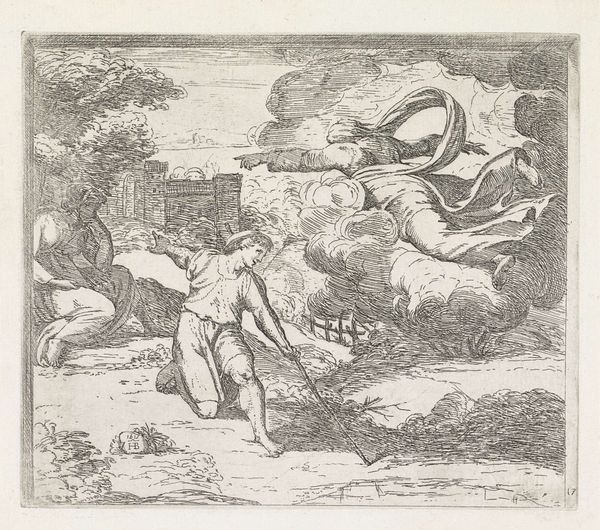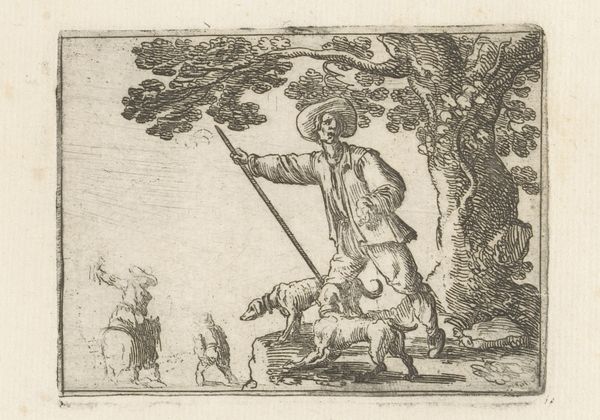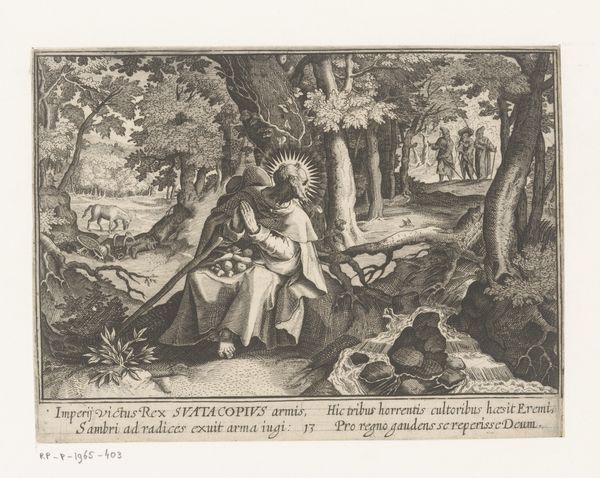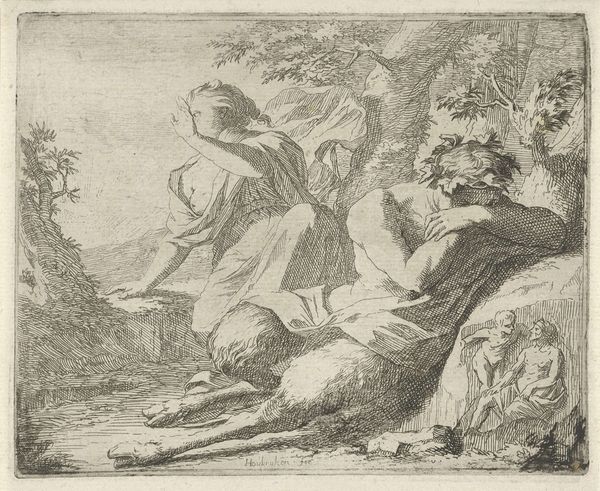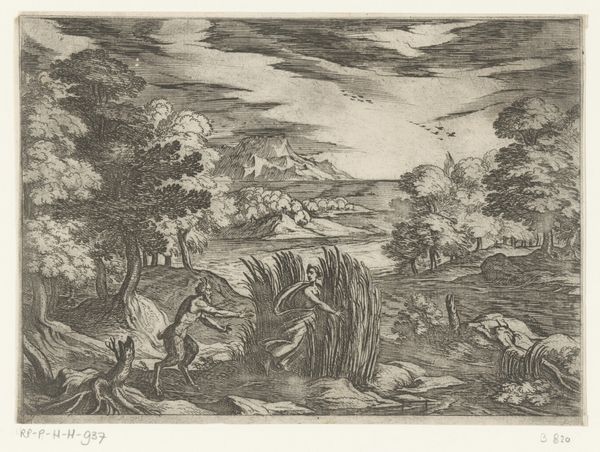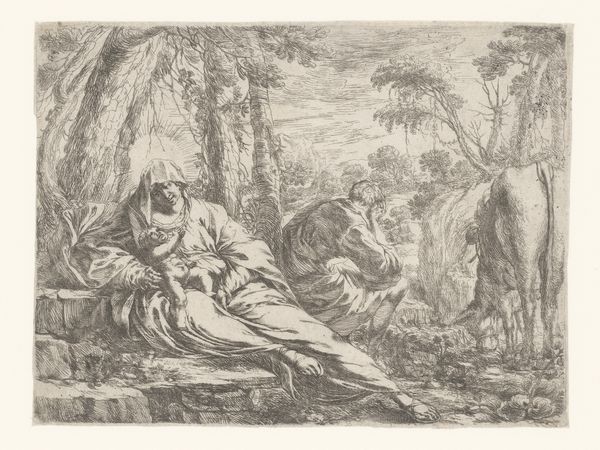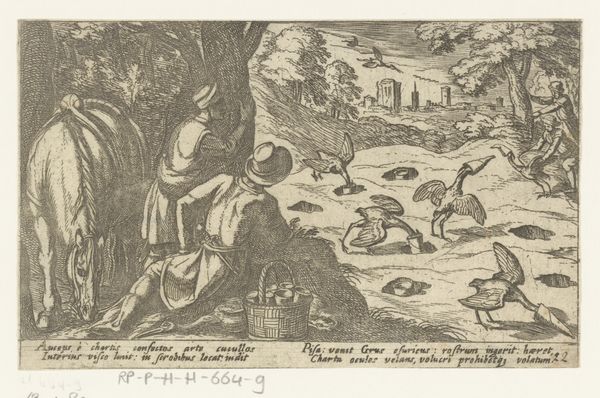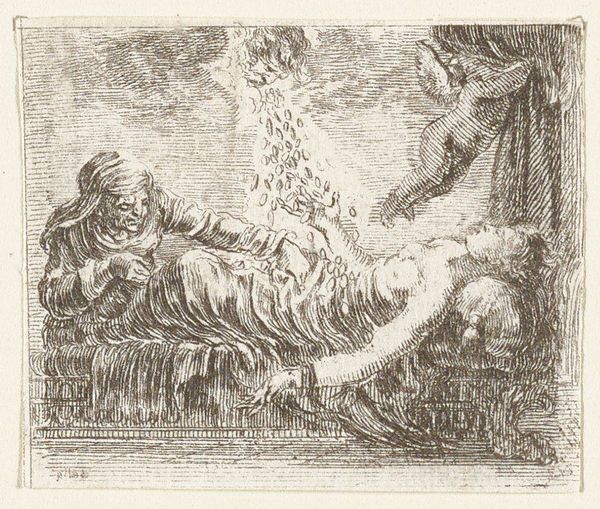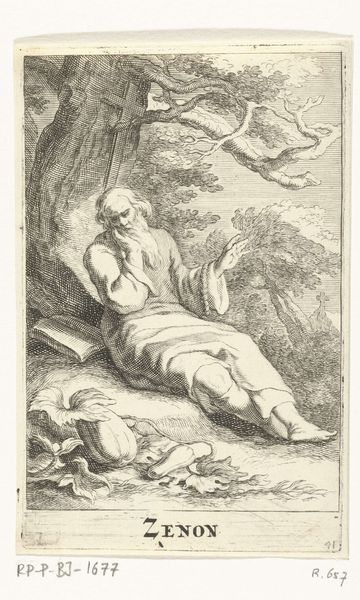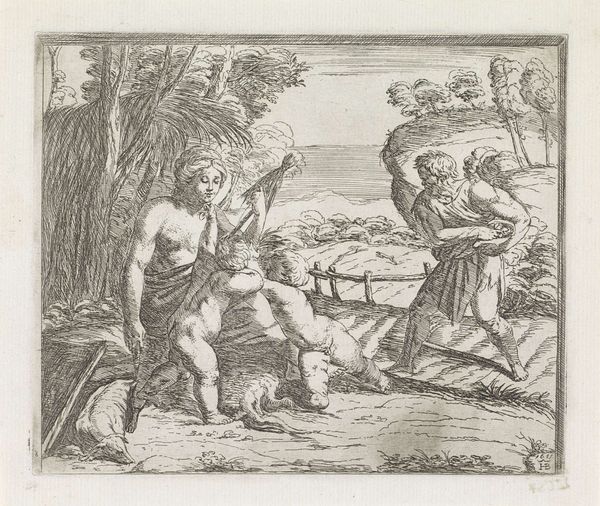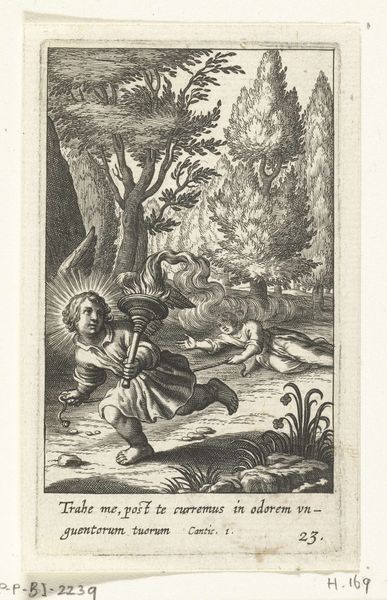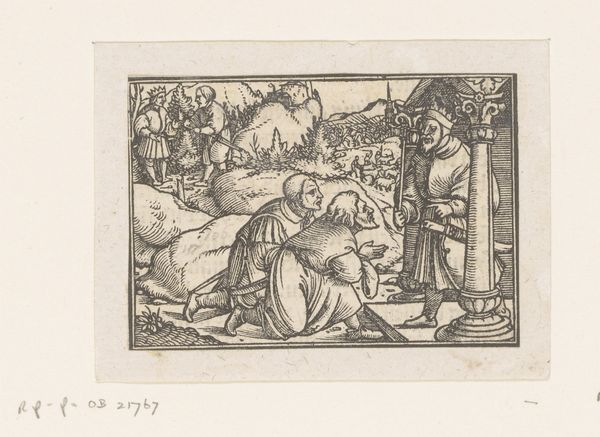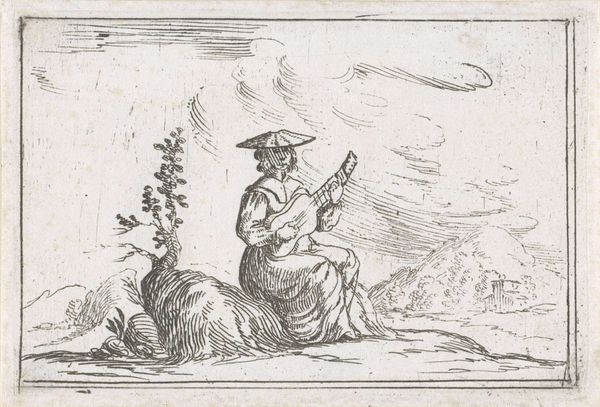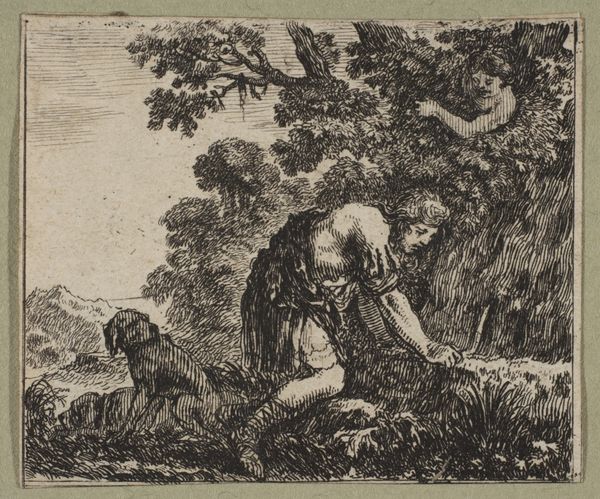
print, engraving
#
ink drawing
#
baroque
# print
#
landscape
#
history-painting
#
engraving
Dimensions: height 156 mm, width 183 mm
Copyright: Rijks Museum: Open Domain
Orazio Borgianni made this print, depicting God appearing to Moses in the burning bush, sometime around the early 17th century. It is made with etching, a printmaking process that relies on the corrosive action of acid. The artist would have started with a metal plate, coating it with a waxy, acid-resistant ground. Using a needle, he would have drawn the composition, exposing the metal underneath. When the plate was submerged in acid, the drawn lines would be bitten, creating grooves. The longer the plate was exposed, the deeper the lines. To make the print, ink was applied to the plate, filling the etched lines, and then the surface was wiped clean. Finally, paper was pressed against the plate, transferring the ink and creating the image we see here. The fine, precise quality of the etching technique emphasizes the drama of the scene. The controlled lines add to the sense of awe and the divine presence. It's a reminder that even in the age of mechanical reproduction, the artist's hand and technical skill were crucial in conveying spiritual themes and cultural narratives.
Comments
No comments
Be the first to comment and join the conversation on the ultimate creative platform.
